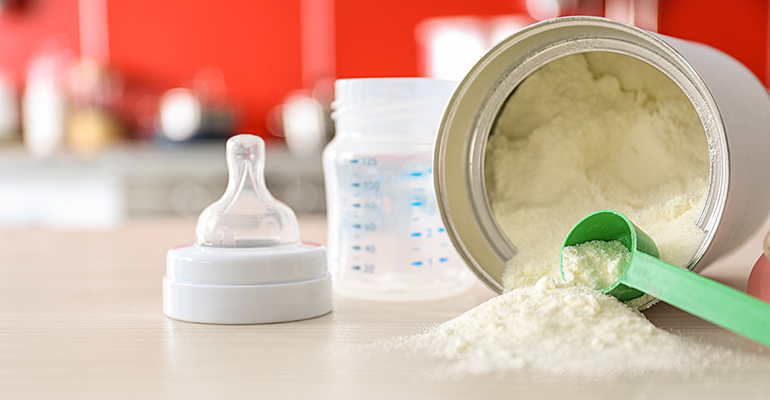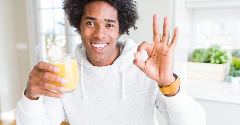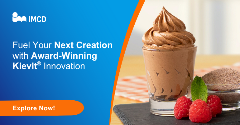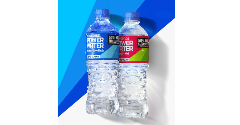News
Baby formula brands innovate with clean label launches
7 Apr 2022
Clean label baby food is receiving a significant amount of development, with two recent brands ByHeart and Bobbi launching formulations certified by the Clean Label Project with a Purity Award.
The Clean Label Project is a non-profit that awards products a certification if they surpass the minimum regulations required by the US Food and Drug Administration (FDA) to remove industrial and environmental contaminants and toxins in food. To earn the certifications, brands must limit traces of pesticides, bisphenols and heavy metals to tolerance levels that are largely informed by California's Prop 65, a law that requires labels to provide warnings of exposure to chemicals that cause cancer, birth defects or other reproductive harm.

This non-profit screened both Bobbi’s and ByHeart’s infant formulations for over 400 contaminants, including heavy metals, pesticides and plastics. According to The Clean Label Project, fewer than two dozen baby food or infant formula brands have achieved these certification requirements to earn its clean label certification.
Infant nutrition has attracted significant innovation in recent years as parents’ concern over what their babies are eating has pushed manufacturers to consider their ingredients and move toward clean label solutions.
Companies like ByHeart and Bobbi work to alleviate that worry by advertising the removal of harmful chemicals and ingredients from their formulations.
How These Labels Become Clean
ByHeart eliminates contaminants by working to have visibility through every part of its supply chain. The company acquired its own manufacturing facility and established a dedicated supply chain using hand-picked ingredients directly from suppliers.
"Four years ago, we began building quality assurance and supplier approval programs that ensure each step of our supply chain meets or exceeds the highest industry standards. Our ownership over direct sourcing and manufacturing allows us this rigor,” Hilary Sibert, senior vice president of quality at ByHeart said in a statement. Batches of Bobbi formula are subjected to 2,000 quality tests to ensure they meet all the safety requirements necessary for an infant formula.
While these two new entrants into the market are focused on extracting contaminants from their formulations, clean-label baby food is a growing demand and encompasses many brands. Once Upon a Farm is another baby food company that has received clean label certifications from the Clean Label Products touting the First 1,000 Day Promise Certification. Else Nutrition is another baby food company that has received also received the Clean Label Purity Award Certification for its plant-based nutritional formula.
What is "Clean Label" Anyway?
In 2018, the ingredients supplier Beno found that for shoppers, a product sporting a clean label is even more important than brand recognition when selecting what to buy.
However, this term has remained nebulous, leaving manufacturers struggling to define what clean label means in order to accommodate consumer demand for this attribute. Avoiding chemical-sounding ingredients as well as artificial colours, sweeteners and preservatives are generally accepted as tenants of the movement, according to International Food Information Council (IFIC) research.
Despite its wide definition, the term remains popular with shoppers since many associate cleaner products with health. In a 2021 survey from IFIC, the company’s director of science communications Megan Meyer said, “Of those who try to choose foods and beverages with clean ingredients, 25% do so to seek the health benefits from these foods and beverages.”
The survey found that overall, ingredients influence the purchases of 63% of adults. When it comes to infant food, parents are also very vigilant when looking at ingredients lists.
The IFIC survey found in 2018 that parents weigh the advantages and disadvantages of the foods they introduce to their children, with 24% saying that introducing foods is a source of worry. For parents of infants under six months, that figure jumps up to one-third.
With the global baby food market expected to grow by 2027 to $96.3 billion (€87.8 billion)from $67.3 billion (€61.4 billion) in 2019 and the clean label market expected to balloon from $38.8 billion (€35.4) in 2021 to $64.1 billion (€58.5) in 2026 at a compound annual growth rate of 6.8%, predicts Market Data Forecast, there is a good chance that there will be additional companies to innovate in this space to bring clean label options to families around the world.
Related news

Oat Barista: Innovation for game-changing beverages
20 Nov 2025
Oat Barista is a clean label, sustainable, and innovative drink base specifically designed to create the perfect foam in one single ingredient.
Read more
How younger consumers are redefining ingredient choices and rejecting brand loyalty
18 Nov 2025
Gen Z and millennial consumers’ preferences for transparency, functionality, and purpose are “redefining the very nature of consumption itself”, says SPINS.
Read more
Hybrid formats and flexible positioning to disrupt category norms in 2026
17 Nov 2025
Trend forecasters expect food and drink to move more fluidly across occasions, functions, and formats as consumers seek versatility, novelty, and convenience.
Read more
Danone highlights digestive health as potential ‘tipping point’ for food industry
13 Nov 2025
Danone is betting on a food industry “tipping point” that will bloat the market for healthy products, particularly those related to gut health.
Read more
New UPF standard hoped to offer consumers ‘coherence and clarity’
10 Nov 2025
Ingredients companies are being urged to enter “a new era of partnership and innovation” following the launch of the industry’s first non-UPF verification scheme.
Read more
Faravelli at Fi Europe: Showcasing FARA® functional solutions for food and nutra
28 Oct 2025
At Fi Europe 2025 in Paris (stand 72M39), Faravelli showcases FARA® Customized Functional Solutions and a wide ingredient portfolio for food and nutra – delivering quality, innovation, and expertise.
Read more
Agrigum Redefined FIBER
27 Oct 2025
Agrigum has transformed gum acacia into a natural, science-backed fibre that supports gut health, sustainability, and innovation across global food and nutrition applications.
Read more
Expanding boundaries in food & beverage innovation
23 Oct 2025
IMCD and FrieslandCampina Professional expand partnership to deliver Kievit® across EMEA, enabling brands to enhance quality and accelerate time-to-market for tomorrow’s food & beverage creations.
Read more
Amazon Grocery launch aims to balance quality with affordability
22 Oct 2025
Global e-commerce giant Amazon has introduced a new private-label food brand, combining existing Amazon Fresh and Happy Belly products with new everyday items.
Read more
Powerade enters hydration space with launch of Power Water
21 Oct 2025
Coca-Cola’s Powerade brand has launched a zero-sugar, electrolyte-enhanced functional water, marking the brand's entry into the hydration space.
Read more